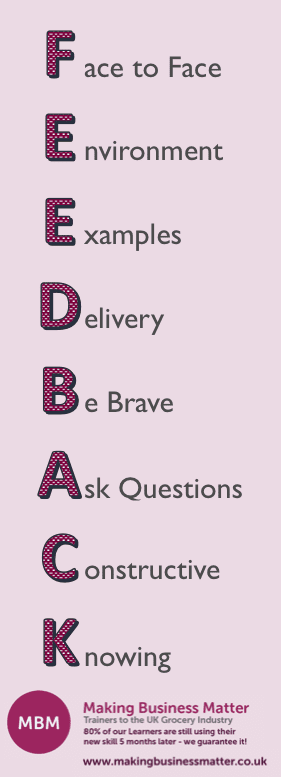How to Maximise Your Approach When Managing People
When it comes to bringing the talent, the role of HR professionals as leaders can hardly be downplayed. They coordinate the talent acquisition, retention and management process and ensure that it is well-aligned with the overall strategies of the business. Considering the fact that a significant amount of resources is spent on finding and keeping the talent that makes a company great, it is important to make the right decisions, and that is the work of the HR and management. So how do you manage people successfully? There are some tried and true steps you can take as an HR professional or manager to make sure you’re headed in the right direction.
In this article, we shall look at 8 of the most important steps you can take to ensure you manage people successfully, based on the lessons I learned running an essay writing service UK company.
1. Treat Job Candidates Like Customers
When you’re creating a product for your company, whether it’s custom papers or iPhones, you make sure it’s an astounding product, and then you follow through with superior customer service to get ahead of the competition. This isn’t necessarily what every business does, but it’s certainly what every great business does.
There is no reason why you shouldn’t treat your employees in this exact same way. Remember, your employees aren’t loyal to you the way they might be loyal to their family or loved ones. They’re shopping around for different companies to work for, and will inevitably choose the best place to work for them. As such, the employment opportunity you’re offering them is very much like a product. You have to start thinking hard about what you can offer.
‘The most important component here is the candidate experience.’
Candidate experience reflects on your company brand in the eyes of existing and potential employees. If you fail job candidates, then your brand will have suffered a dent. Enough of those dents mean that your brand may never recover.
Whatever job candidates think of your company, they will spread via word of mouth. That can be a powerful way to make or break your brand. So what you want to do is make candidates feel like they were treated professionally and respected throughout the interview and recruitment process.
This is true, even for the candidates you reject. Depending on how you treat them, they might end up being your greatest brand ambassadors. There are writing candidates we rejected at my service, but because we treated them well, they still went out to convince their friends to buy college papers from us. When a candidate has a good experience, they will tell their friends about it. This will likely happen whether they eventually get the job or not.

2. Make Sure Plans Are Aligned
Whatever strategy you come up with for talent acquisition, it should align with the top-level business strategies of the company. What kind of employees do you think would be best for your company? What do you think would be the best way to ensure that employees are committed to helping the company reach its goals?
If there’s a lesson I learned from running a large team of dissertation writers it’s that each employee should fit well into the culture of your company. If the talent isn’t aligned with the business, then you won’t get the results you were hoping for. Not only that, but you will have wasted substantial resources, both in money and time, in hiring the wrong people.
This translates to managers spending more time actively managing people. For instance, monitoring those employees that need a little coaching to prevent things from going wrong, as well as correcting them when they do. And companies losing their investment in the recruitment, training and development of talent, and the cost of covering for all the lost productivity that comes about as a result of the whole thing.
3. Progress Should Be Measured
You can’t apply the same yardstick to every role in the company. So you’ll have to figure out what ‘success’ looks like, depending on the role. In that case, you’ll have to evaluate each employee on a regular basis. You should be clear in your approach to managing people. Be open with each employee on how they’re doing and where they can improve.

Timely and specific feedback is vital for employees as it helps them to constantly perform at their best.
4. Engage Your Employees
Employees are capable of achieving truly remarkable results when they are fully engaged with their work. Commitment to the goals of the organisation has a tendency to spread like wildfire. If you can inspire even a small group of employees to be committed, they can infect the others with the same enthusiasm.
As a manager, you need to create a stimulating environment that boosts employee motivation and performance. For me, it was all about reminding my team every day that they were working for one of the best paper writing services around, and that we had a duty to be the best. That worked for my team; you should find something that works for yours too.
5. Compensate Your Employees Generously
If your employees feel like they are not being compensated fairly, or that other companies are paying significantly more or offering better overall compensation for the same job than they’re getting at your company, they are unlikely to be motivated while working for you.

While a higher salary is a good thing, a competitive compensation package could mean a lot more than that, such as the opportunity to work from home, health packages, child care, lots of vacation time, and so on. The idea is to help your employees feel valued in order to keep them with you.
6. Employees Share Their Concerns With You
A dissatisfied employee with no way to express himself or herself will probably be a lot less motivated to stay at your company and perform than one who feels listened to. They’ll also be more likely to quit. You should, therefore, make the effort to collect employee feedback as often as possible. That way you have a constant finger on the pulse of the company workforce. Also, you never know, some of your employees may have brilliant ideas about how you can improve things at your company. Something you may never know if you don’t listen to them, though.
7. Keep Things Clear
It is important for your employees to know just what is expected of them. That way, they know what they should work toward. Once you hire employees, you should spend a significant amount of effort setting clear and relevant goals, as well as setting expectations for performance.

As each employee accomplishes their set tasks, the organisation as a whole will be inching closer and closer to achieving its goal.
8. Clear the Path for Advancement
Employees who feel like they are stagnating tend to look for opportunities elsewhere. If you instead give your employees continuous options for advancement and career development, they are likely to want to stay.
Action: For even more useful content on people management, check out our ultimate guide on People Management Skills.




